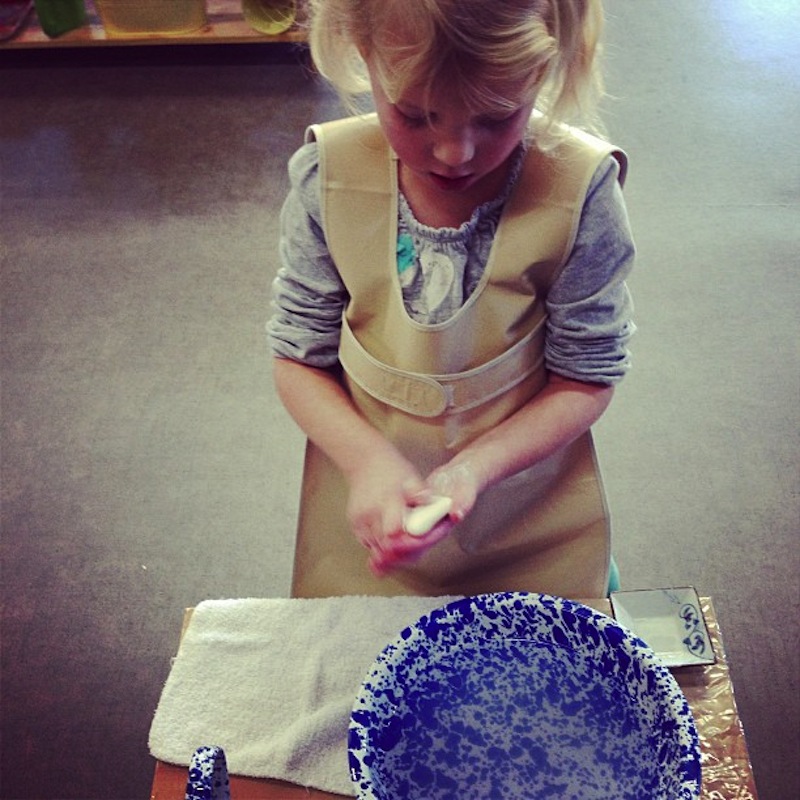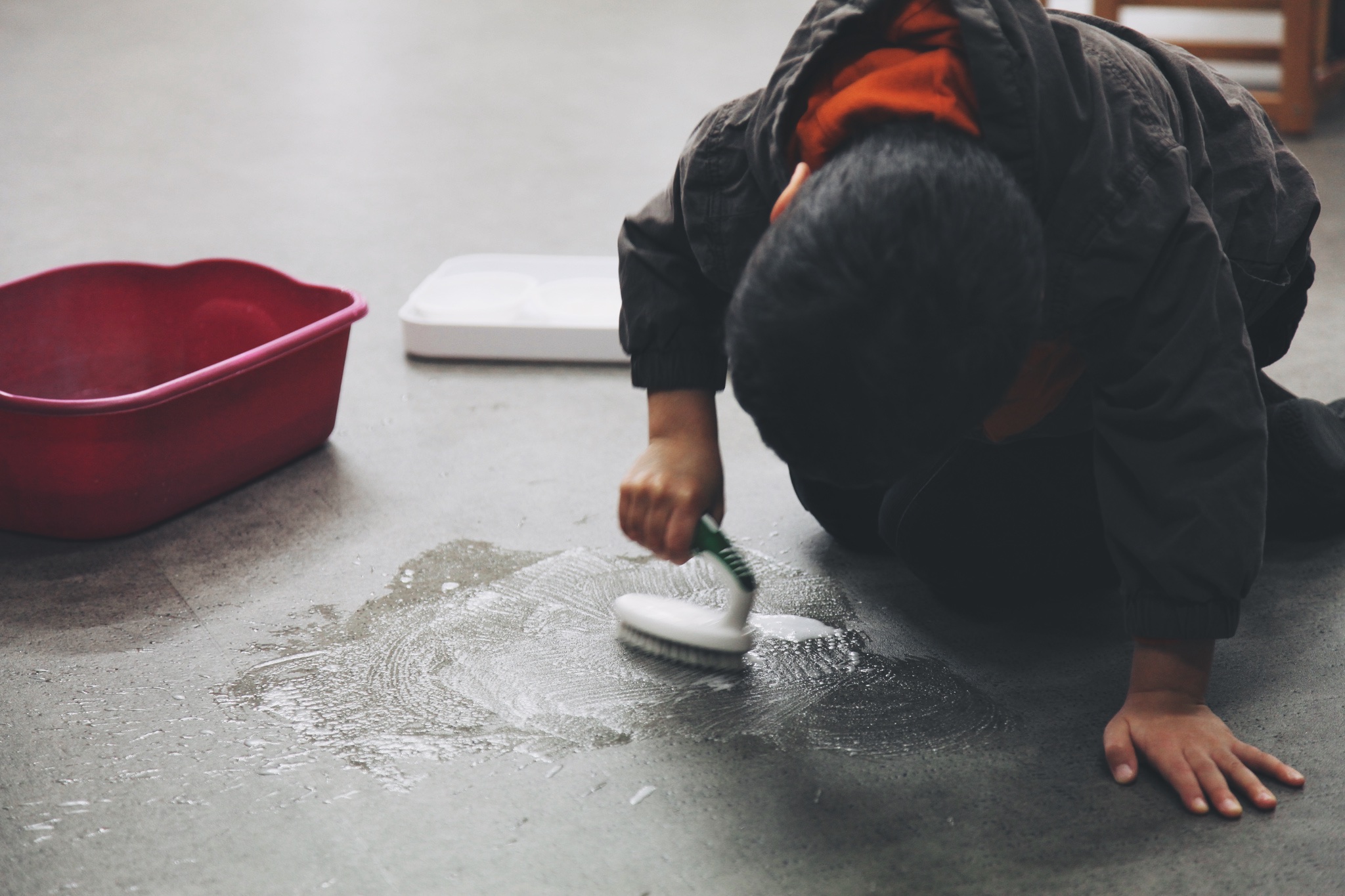Hygiene and Montessori
Thoughts & Reflections
One of our astute parents started a conversation about hygeine, discussing the relevance and necessity of teaching our children the importance of not only washing their hands but also sanitizing their environment. We thought we would take this opportunity to explain the origins of the “care of oneself”, as concerns the Montessori classroom. Now, more than ever, the founding principles remains the same: we must help children learn how to help themselves.

At the turn of the 20th century, the number one cause of death was infection. That may come as a surprise to us today, with the advent of antibiotics, but it was a concern that they took very seriously. Until it could be summarily treated, infection was perceived with a sense of mystery and consternation. Of course, we must still respect the viruluence of infection today. Is it still, one may ask, completely understood? With that history in mind, it’s important to remember that Montessori was at the forefront of medical research, knowing and attempting to understand, at least in a rudimentary sense, how germs spread.
As many of you know, Montessori was, first and foremost, a physician, then an educator. She was highly aware of the latest thinking on hygiene, and brought a real aptitude to thinking about the body in relation to education. One of her activities, which serves multiple purposes, is the washing hands activity, pictured above. Montessori understood that school was a place where germs spread readily, and wanted to help protect children, by teaching them how to wash their hands. The care for the environment, is the care for oneself.
Hope you have enjoyed this post on Hygiene and Montessori.
Written by:
Bobby George
